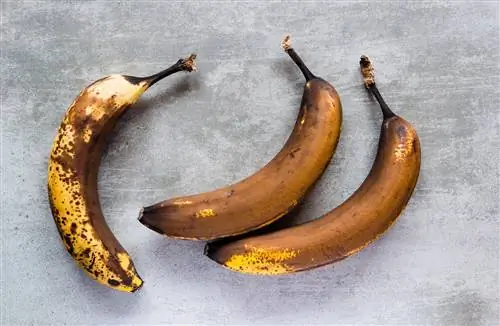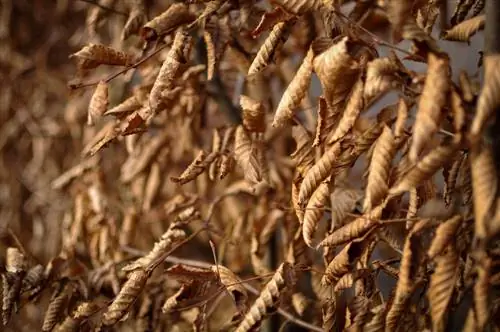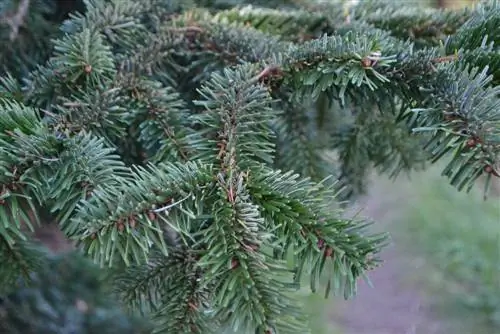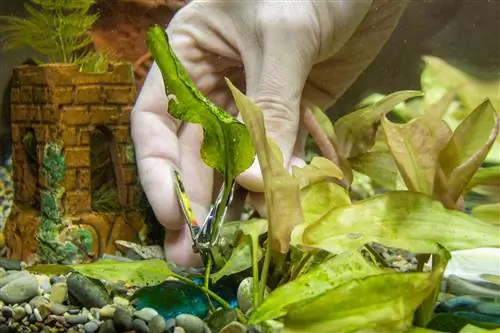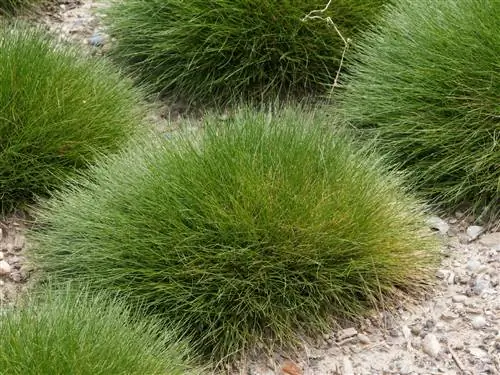- Author admin leonars@hobbygardeners.com.
- Public 2023-12-16 16:46.
- Last modified 2025-06-01 06:02.
It's like magic: in the supermarket the bananas still looked appetizingly yellow and just two to three days later the fruits get their first yellow spots. Why is that? And can browning be prevented? You can find the answer in our text.
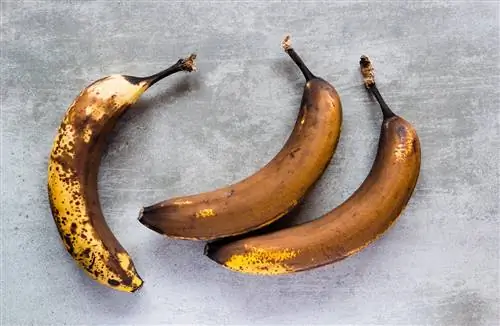
Why do bananas turn brown?
Bananas turn brown because they continue to ripen after they are harvested. The brown color is asign of maturityand is caused by the interaction ofoxygenand the enzymephenoloxidaseIn addition, the starch contained in the pulp is increasingly converted into sugar.
How do you store bananas so they don't turn brown?
If only the peel of the banana turns brown, this is a natural sign of ripeness. The pulp, however, initially remains light and only becomes sweeter as starch is converted into sugar. Brown spots on the pulp, on the other hand, usually arise from incorrect storage, resulting in pressure points, or because oxygen has penetrated into the interior due to a breach in the protective shell. With proper storage you can delaybrowning:
- Store bananas only at room temperature
- only store alone, v. a. not with apples
- store hanging, e.g. B. on a banana stand
- Wrap the stalk with cling film (it gives off a particularly large amount of the ripening gas ethylene)
However, bananas don't last forever and will eventually go bad.
Can you still eat bananas if they are brown?
Since this is a natural ripening process, you can of course still eat brown bananas - as long as they are not mushy on the inside and/or smell rotten. You should also throw away bananas with moldy spots. In fact, green or yellow bananas are not really ripe yet; only fruits with a brown-spotted peel are considered ripe. These are significantly sweeter and easier to digest than specimens without brown coloring. Ripe bananas also contain a lot of tryptophan, a precursor to the neurotransmitter serotonin, which puts you in a good mood.
Why do bananas turn brown in the cold?
Bananas come from the tropics and need a lot of warmth. If you store the fruits in the refrigerator, they will suffer a cold shock and will quickly turn brown as a result. That's why you should never store bananas - like other tropical fruits and tomatoes - in the refrigerator (not even in the vegetable compartment!). However, the fruits are very suitable for freezing and can then be used for homemade ice cream or cool smoothies, for example.
Tip
Where is the best place to store bananas?
Bananas are best kept separately from other fruit - especially separately from apples! - and stored at room temperature. Apples emit the ripening gas ethylene, which causes nearby fruits to brown more quickly. However, you can prevent pressure points by hanging it up. If you want to prevent browning after cutting, you can sprinkle the bananas with lemon juice.

